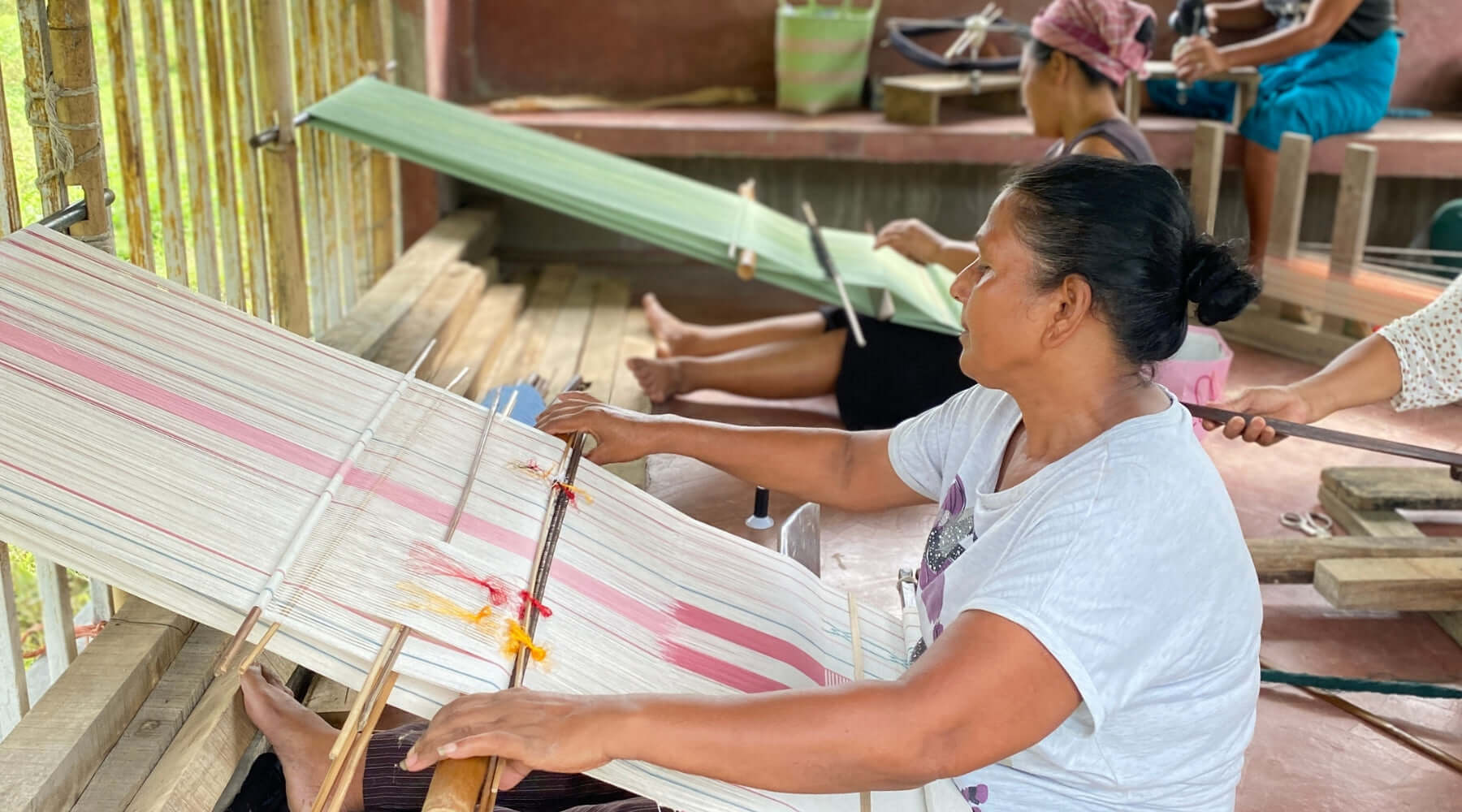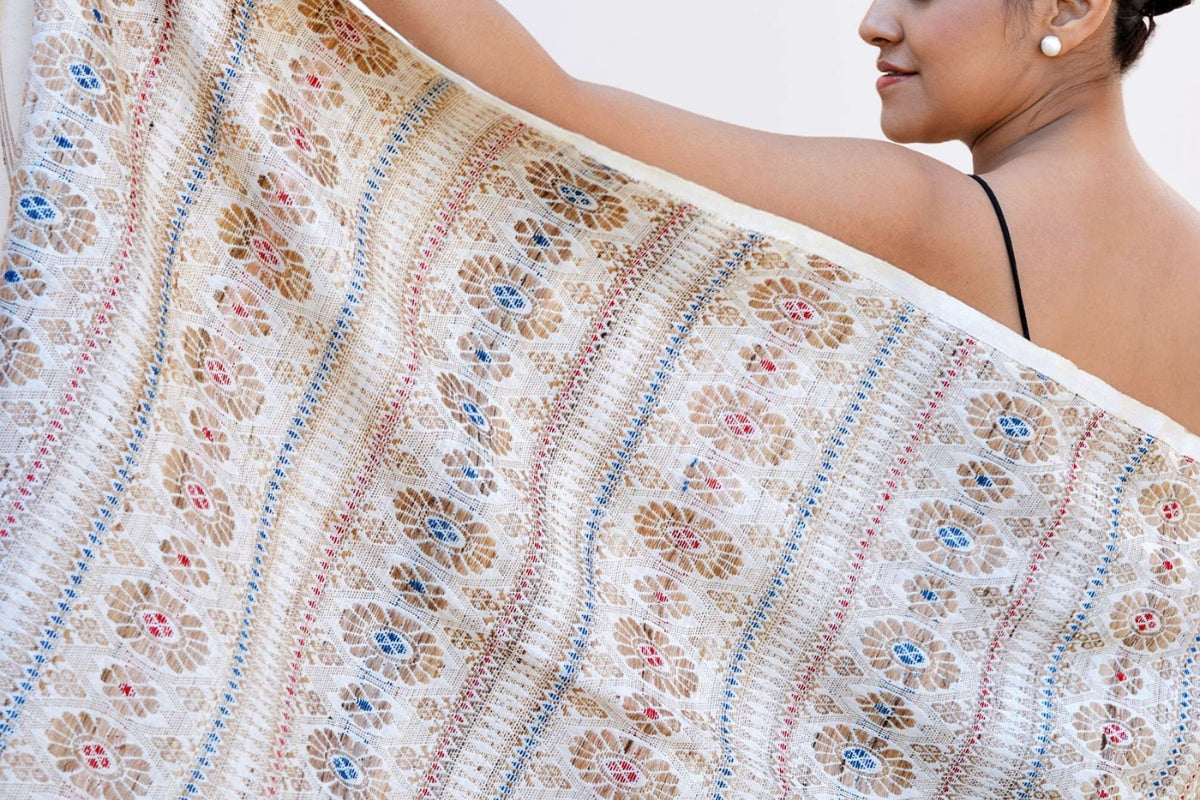When building a brand like Dzukou, which focuses on empowering rural artisans, particularly women in North-East India, ethnographic research plays a crucial role. Ethnography, the study of people and cultures through immersive fieldwork, helps brands like Dzukou understand the lived experiences, needs, and challenges of the communities they work with. By adopting an ethnographic approach, Dzukou can build not only a strong connection with artisans but also a brand that resonates deeply with the values of authenticity, sustainability, and social impact.
Here's why ethnography is key in building a brand like Dzukou:
Understanding Local Craftsmanship
Ethnography allows Dzukou to dive deep into the traditional craftsmanship practices of rural artisans. It provides an opportunity to observe how they produce their goods, the materials they use, and the processes they follow. Understanding these practices is essential for the brand to promote these products authentically and sustainably in global markets. By participating in local activities and conducting interviews with artisans, Dzukou can uncover insights into their techniques, challenges, and aspirations, which can influence design decisions and product offerings.
Fostering Trust and Authentic Relationships
Building a brand like Dzukou requires strong, trust-based relationships with artisans. Ethnography helps in understanding the social dynamics and cultural context within rural communities. In regions like North-East India, relationships are often built on respect, trust, and mutual understanding. By spending time with artisans, listening to their stories, and understanding their concerns, Dzukou can create a brand that truly reflects the values of the community. This approach ensures that the artisans feel valued and understood, fostering long-term collaboration and empowerment.
Identifying Hidden Opportunities
Through ethnographic research, Dzukou can identify untapped opportunities within the artisan community. For example, by observing artisans’ daily lives, the brand can uncover needs that are not immediately obvious but could lead to innovative product ideas. Additionally, ethnography reveals how local communities interact with existing markets, which can offer insights into potential gaps or areas for improvement in the supply chain. By understanding the intricacies of rural life, Dzukou can create products that not only meet the needs of consumers but also align with the aspirations of artisans.
Ensuring Cultural Sensitivity
Ethnographic research provides a framework for cultural sensitivity, ensuring that Dzukou’s brand narrative is rooted in authenticity and respect for the local culture. Understanding the traditions, values, and norms of rural communities helps prevent missteps that could arise from cultural misunderstandings. This sensitivity is crucial when promoting traditional products like handwoven textiles, as it ensures that artisans are not exploited and that their craft is showcased in a way that honors its cultural significance.
Empowering Artisans and Ensuring Social Impact
At the heart of Dzukou’s mission is the empowerment of rural artisans, particularly women. Ethnography allows the brand to assess the specific challenges faced by women in these communities, whether it’s access to resources, financial independence, or societal barriers. By understanding these issues on a deep, personal level, Dzukou can develop targeted programs and initiatives that help improve the quality of life for artisans. For example, ethnographic insights might reveal the need for skills training, financial literacy workshops, or more sustainable production practices, which Dzukou can then integrate into its operations.
Creating Products That Reflect Local Identity
Through ethnography, Dzukou gains a deeper appreciation for the cultural significance of the products created by rural artisans. By understanding the stories behind the crafts, such as how a particular weave or dye technique is passed down through generations, the brand can create products that reflect the identity and heritage of the community. This not only adds authenticity to the brand but also creates a more compelling story for consumers, who are increasingly drawn to products with a meaningful cultural narrative.
Building a Strong Brand Narrative
The insights gathered from ethnographic research enable Dzukou to tell a compelling, authentic story. In today’s world, consumers want more than just a product; they want to connect with a brand that has a clear purpose and values. By highlighting the craftsmanship, the artisan stories, and the social impact of the brand, Dzukou can build a narrative that resonates with conscious consumers. Ethnography allows Dzukou to move beyond surface-level branding and create a brand that speaks to the hearts and minds of its audience.
Facilitating Effective Product Development
Ethnographic research is also invaluable in product development. By observing how rural artisans interact with materials, tools, and techniques, Dzukou can identify potential improvements or new innovations. For instance, if artisans are facing challenges in sourcing raw materials, Dzukou can work on creating sustainable, locally sourced alternatives that improve the production process. Furthermore, understanding the needs of the artisans can lead to the creation of products that are both marketable and meaningful, helping to bridge the gap between traditional craft and contemporary consumer demands.
Enhancing Market Access
One of the key challenges faced by rural artisans is limited access to larger markets. Ethnography helps Dzukou understand how local artisans perceive markets, which can vary greatly between regions. Through this research, the brand can identify the most effective ways to connect artisans with both national and international buyers. Whether it’s through e-commerce platforms, fair-trade partnerships, or direct consumer engagement, ethnographic insights ensure that Dzukou’s market strategies are aligned with the needs of artisans and the realities of the rural economy.
Conclusion
In building a brand like Dzukou, ethnography provides the essential tools to not only understand the rural artisans' world but to build products and create brand strategies that are aligned with their needs, values, and culture. By immersing itself in the lives of artisans, Dzukou ensures that it remains authentic, impactful, and true to its mission of empowering rural communities. Ethnographic research doesn’t just help Dzukou build a brand; it helps build a movement that is rooted in respect, empowerment, and sustainable innovation.





